Religion
/Health
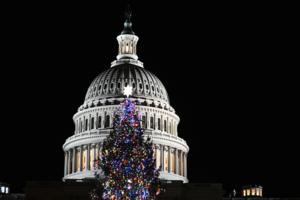
Religious landscape of new Congress features noticeable partisan differences
The religious makeup of the 119th Congress will be little changed from the previous term, although with some pronounced differences between the two parties, according to an analysis of biographical data collected and compiled by CQ Roll Call.
On average, Congress will continue to be much more religious than the nation as a whole, with around 95...Read more
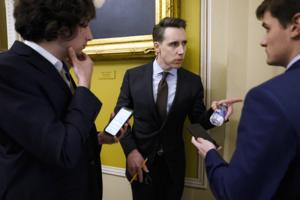
Josh Hawley thinks America needs a religious revival. Is this man helping him find it
WASHINGTON — H.W. Crocker III thinks Western civilization is in trouble.
He supports conservative Christian moral values and has decried the rise of a new, secular America where a growing number of people answer “none” to surveys asking which religion they practice. He’s lauded the Confederacy and its soldiers and generals in books ...Read more
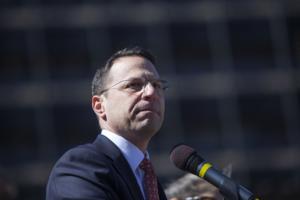
Pa. Gov. Josh Shapiro is part of a rising group of Democrats who are proudly showing their faith
PHILADELPHIA — Gov. Josh Shapiro had a big 2024 — from his star turn as a contender for the vice presidential ticket to his campaign trail cameos as a prominent Democratic election surrogate, and as a vocal supporter of Israel. As the year comes to an end, his national profile has continued to grow, this time with a focus on how he uses his ...Read more

Merry Christmas and Happy Hanukkah! Rare holiday overlap sparks reflection on faith
MIAMI — For the first time in nearly 20 years, the first night of Hanukkah falls on Christmas Day, marking a rare confluence of Jewish and Christian holidays, which occur on separate calendars.
Many regions of the country are home to a variety of faith groups, with rich traditions and cultures. In South Florida, for instance, though there are...Read more
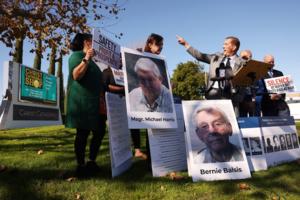
Diocese of Orange, California, will pay $3.5 million to settle sexual abuse allegations against former school leader
LOS ANGELES — The Diocese of Orange has agreed to pay $3.5 million to a man who alleges he was sexually abused by a former administrator at Mater Dei High School in the late 1970s.
The settlement concludes a lawsuit filed in 2019 against the diocese and brings the amount the Catholic Church has paid out in civil cases involving Msgr. Michael ...Read more
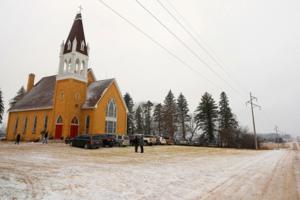
'You can't let it be lost': Residents revive Christmas service in long-shuttered church
PAYNESVILLE, Minn. – The red wooden doors at Salem Historical Church have been tightly sealed and locked for most of the last half-century.
But on Saturday night, the doors were a portal to the past: Inside were twinkling holiday lights and a pine tree that stretched to the ceiling, its boughs draped in silver tinsel. A sugary aroma hung ...Read more
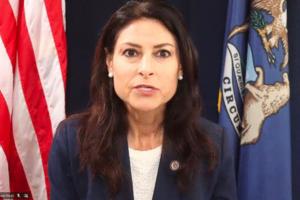
AG report details abuse allegations against 52 priests, deacons in Diocese of Lansing, Michigan
DETROIT — Michigan Attorney General Dana Nessel released the fourth of seven reports Monday related to a years-long investigation into clergy sexual abuse within Michigan's Catholic dioceses.
The report indicated that the investigation into the Diocese of Lansing, which began in September 2018, found that 48 priests, three religious brothers,...Read more
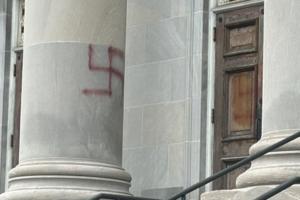
Swastikas spray-painted outside entrance to Temple Israel synagogue in Minneapolis
Two spray-painted swastikas were found outside Minneapolis’ Temple Israel, the largest synagogue in Minnesota, on Monday morning.
The symbols were found spray-painted in red on a pillar and a door on the temple’s Emerson Avenue S. entrance, according to Rabbi Marcia Zimmerman. A report has been filed with police.
“It is heartbreaking to ...Read more
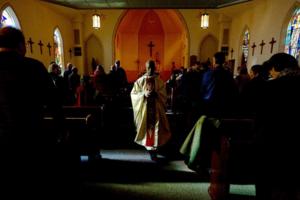
With one last hymn, parishioners bid farewell to 150-year-old church in small Minnesota town
WILSON TOWNSHIP, Minn. – The last time the Catholic church here faced an existential threat was on New Year’s Eve 1935, when the church was set ablaze. Not even a trace of its sacred vessels was found in the debris.
The hardship of the Great Depression did little to deter the congregation. Within weeks, parishioners were rebuilding. Men of ...Read more
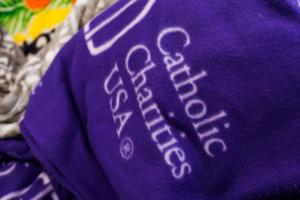
Supreme Court may free Catholic Charities from paying state unemployment taxes for their employees
WASHINGTON — The Supreme Court voted Friday to hear a potentially far-reaching claim of religious freedom and decide whether church-sponsored charities, programs and businesses may refuse to pay state unemployment taxes for their employees.
All states exempt churches and church programs from the taxes if they "operate primarily for religious ...Read more

Are religious people more generous than non-religious people? What new study finds
People of faith are not more generous than non-religious people — except in one case, a new study found.
A study by researchers at Linköping University in Sweden found that religious people are more generous than non-religious people when they know the recipients’ religious beliefs — otherwise there is no difference.
The research ...Read more
Gay, Jewish and Orthodox. How one group is working to open minds in Florida
MIAMI — Daniel Gammerman, a lifelong Orthodox Jew, began noticing some changes at his South Florida synagogue.
Gammerman, who is originally from Brazil but spent most of his adult life in Miami, was no longer being asked by his Rabbi to lead prayers or read the Torah during services — things he had enjoyed doing regularly. One day, his ...Read more

Long Island Catholic diocese finalizes $323 million settlement for child sex abuse victims
NEW YORK — A years-long legal battle between Long Island’s Catholic diocese and hundreds of alleged sex abuse victims came to an end Wednesday, with a bankruptcy judge in Manhattan approving a plan that finalizes a $323 million settlement.
As part of the settlement, the Diocese of Rockville Centre will begin making payments next year to ...Read more
Ex priest, 93, pleads guilty to raping, kidnapping young boy
A retired Roman Catholic priest accused of raping and kidnapping a young boy nearly 50 years ago entered a guilty plea on Tuesday, just before jury selection for his criminal trial was set to get underway.
Lawrence Hecker, 93, pleaded guilty to first-degree rape, aggravated kidnapping, aggravated crime against nature and theft. He’s scheduled...Read more

You don't have to celebrate Christmas to experience the spiritual benefits of Advent
Ellen O'Brian hadn't bought a candy-filled advent calendar in years, but when she saw the festive cardboard box with little numbered panels in her local natural foods store, she couldn't resist.
"It's put out by a chocolate maker called Divine, and it's dark chocolate for the dark time of the year," said O'Brian, founder of the Center for ...Read more
Southern California priest supported political candidates, apparently violating federal law: 'I won't stop'
LOS ANGELES — A week before the general elections, worshipers at the St. Gertrude the Great Catholic Church in Bell Gardens were listening to the parish announcements when Father Nabor Rios introduced a political candidate.
"I'm not saying to vote for her," he told people, pausing. "Well, I am saying to vote for her, but Isabel is gonna run�...Read more
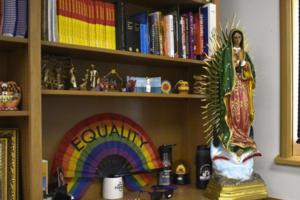
'You are not an error.' How an Episcopal church reaches LGBTQ+ farmworkers
FRESNO, Calif. — Workplace bullying, religious trauma, complicated relationships with their own communities.
These are some of the challenges that LGBTQ+ farmworkers face, said Rev. Nelson Serrano Poveda, the Latino/Hispanic missioner at Fresno’s St. James Episcopal Cathedral. Many come from small, socially conservative towns in Latin ...Read more
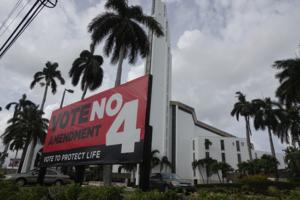
In melding faith and politics, churches follow do's and don'ts this election season
Don’t be surprised as Election Day fast approaches to see many signs outside Florida churches telling you to vote a certain way.
Mixing faith and politics, churches have long weighed in on matters affecting communities in the state and across the U.S., and their efforts are underway this year with the issue of abortion on Florida’s ballot. ...Read more
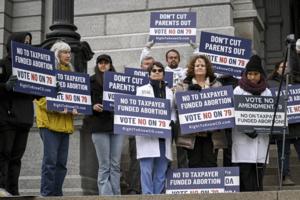
Denver Archdiocese, Catholic nonprofit contribute $225,000 to anti-abortion group in fight over Colorado's Amendment 79
DENVER — The Archdiocese of Denver and a nonprofit representing the state’s Catholic bishops have contributed $225,000 to a Colorado anti-abortion group in its fight against Amendment 79, which would enshrine abortion rights in the state’s constitution.
The Pro-Life Colorado Fund, a coalition of more than 50 anti-abortion groups, received...Read more
Youth leader at Texas megachurch charged with child porn
A youth leader at an Evangelical megachurch in west-central Texas has been arrested and charged with child pornography, authorities said.
Charles Goff, who served as a youth volunteer at the Beltway Park Church in Abilene for approximately three years, reportedly told a member of the church he was struggling with his desire to watch child ...Read more
Popular Stories
- Religious landscape of new Congress features noticeable partisan differences
- Merry Christmas and Happy Hanukkah! Rare holiday overlap sparks reflection on faith
- Josh Hawley thinks America needs a religious revival. Is this man helping him find it
- Pa. Gov. Josh Shapiro is part of a rising group of Democrats who are proudly showing their faith
- Gay, Jewish and Orthodox. How one group is working to open minds in Florida







